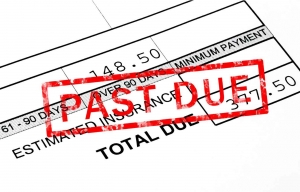Recently I watched a film about the extension of the telegraph from Omaha to California. It was the original Twitter. Telegrams were short, stylized forms of communication but they were immensely powerful. Like the extension of the railroads, the telegraph helped to . . . Continue reading →
Pater noster
Heidelberg Catechism 122: What It Means To Say “Hallowed Be Your Name”
Our familiarity with the Lord’s Prayer (Matthew 6:9–13) might give us the impression that it is rudimentary. It is not. Right at the outset we are confronted with a challenge. The first petition is not quite what we might think. There is . . . Continue reading →
Heidelberg 123: The Second Petition—Your Kingdom Come (1)
What this all means is that how one understands the kingdom is very closely related to one’s eschatology. This is the often unspoken assumption behind the too-often heated debate over the kingdom in confessional Reformed circles. Most everyone in the contemporary intra-Reformed agrees that Christ is reigning now, that he is sovereign now, but the disagreement comes over the implications of that reign. We all agree that the kingdom has been inaugurated and that it has earthly manifestations but where we disagree is where to look for those manifestations. Since the late 19th century, those who have been influenced by what has come to be called “neo-Calvinism” (neo is Greek for new) have sometimes argued that Christ’s reign is such that the kingdom is manifested in everything than any Christian does for the sake of Christ. This is a more expansive way of speaking of the implications of the kingdom of God than was traditionally used. Those who take the narrower view, tend to associate the manifestation of the kingdom of God on the earth with the visible institutional church. Continue reading →
Heidelberg 123: The Second Petition—Your Kingdom Come (2)
We have already seen some of the difficulties that come with both an over-realized and under-realized eschatology. In contrast to both we should see that the Gospel of Mark presents our Lord Jesus as proclaiming neither a fully realized, earthly kingdom nor . . . Continue reading →
Heidelberg 124: Not My Will But Yours Be Done
One of the most striking moments in the gospels is our Lord’s prayer in Garden of Gethsemane (Matthew 26:36–46; Mark 14:32–42; Luke 22:39–46). For one thing, in those moments we are given compelling evidence of our Lord’s true humanity. This is not . . . Continue reading →
Heidelberg 125: Trusting And Asking Our Father To Provide
We are often tempted to set asking and trusting against each other but, of course, it is a false choice. When a child asks his Dad for breakfast he trusts that his father can provide. It does not occur to him to . . . Continue reading →
Heidelberg 126: Justified Sinners Pray For Forgiveness Of Sins
One of the most persistent temptations Christians face is that of turning the covenant of grace into a covenant of works. As we pray we must always be reminded that we, who trust in Jesus Christ as our substitute and Mediator, are . . . Continue reading →
But Deliver Us From The Evil One
Whoever has God for his friend will find Satan to be his enemy. He receives the name of Satan, first, because he is the adversary of God himself; and next, because he is the adversary of those whom God honors with his . . . Continue reading →
Heidelberg 128: The Doxology
We might first associate the word doxology with the song often sung at the close of public worship services but it is, in fact, two Greek words (δόξᾰ + λογία), which was taken over into medieval Latin and thence into English in . . . Continue reading →
Heidelberg Catechism 129: Amen Means More Than You Think It Does
There are a couple of expressions that we use, in prayer, almost without thinking. One of them is the word “Amen.” This little term is more important than we might think. In at least one place in Scripture it is used as . . . Continue reading →






